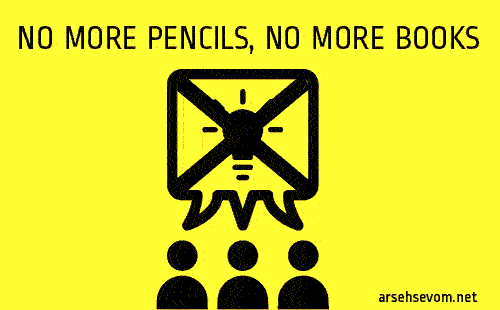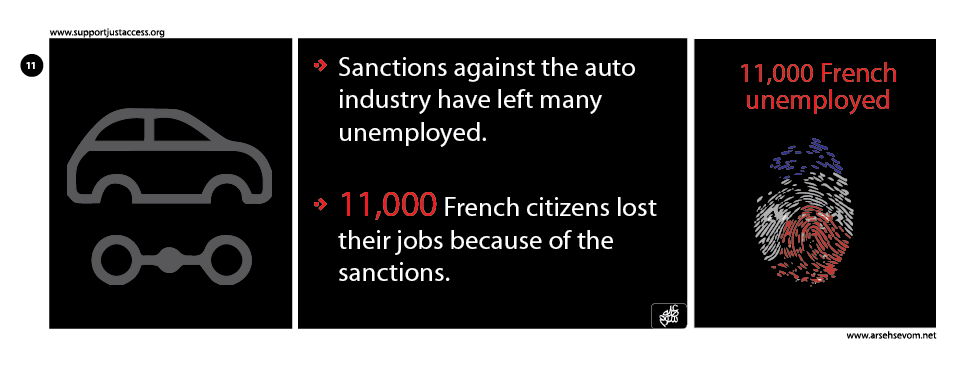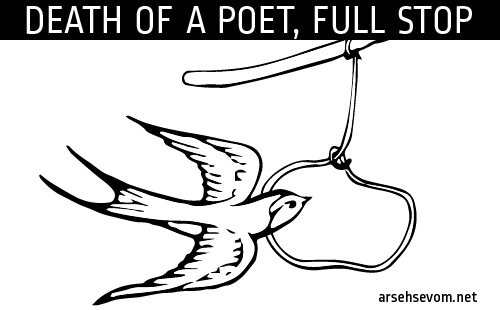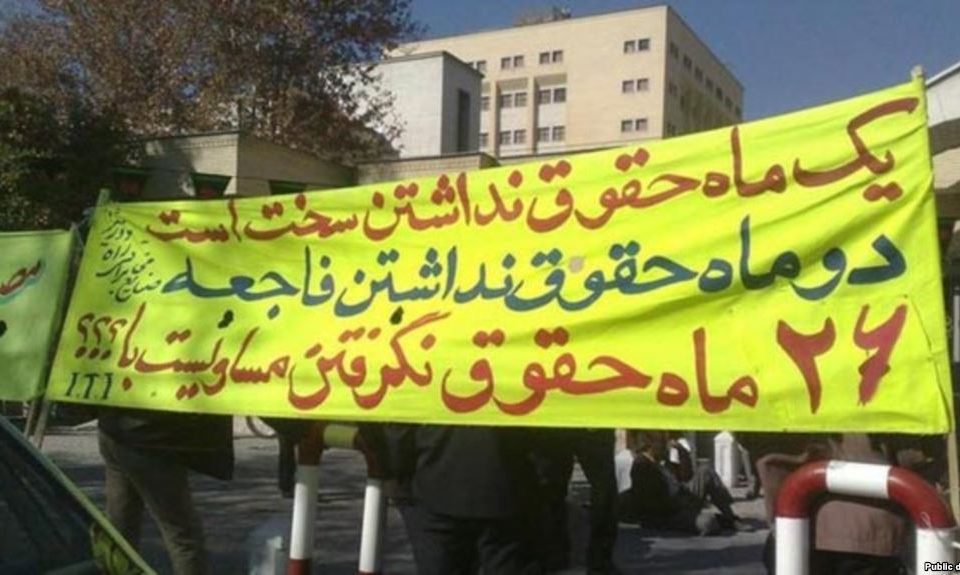
US Sanctions Law Shuts Down Online Courses in #Iran
January 29, 2014
#Iran–Negotiations, Prisoners of Rights, and More
February 19, 2014Arseh Sevom – There are times when the sword is mightier than the pen and on January 29 it was so. Two Ahwazi Arabs were executed without warning, without the chance to say goodbye to loved ones. Their crime: “enmity against God.” This review looks at politics, sanctions, apologies, and executions.
By Peyman Majidzadeh
Last week, US Office of Foreign Assets Control (OFAC) published the new Specially Designated Nationals (SDN) list [en]. The list includes individuals and companies owned or controlled, or acting for or on behalf of, targeted countries, and also targeted individuals and groups that are not country-specific. A simple search reveals that the word “Iran” is repeated 5066 times in the document.
OFAC also published the new list of Foreign Sanctions Evaders (FSE) [en]. This one includes foreign individuals and entities that have violated sanctions on “Syria or Iran” — interestingly, Iran and Syria are regarded as a “package.”
France and Iran are looking forward to resuming business interactions [en], while US Secretary of State John Kerry warned French companies [en] on the issue.
In a conference on renewable energies which was held 18th and 19th January in Abu Dhabi, representatives of Iran and Israel [fa] sat behind tables a few meters from each other. Similarly, Israel’s Defense Minister Moshe Ya’alon did not leave the hall when Zarif gave his speech at the Munich Security Conference [fa]. These events are meaningful in international relations given the existing history.
On January 29, 2014, two Ahwazi Arabs were executed in Iran for “enmity against God.” One of them, Hashem Shabani, was a poet who managed to smuggle letters and poems [fa] out of prison. (Forgive our awkward translation of a phrase from one of his poems, which in Persian is filled with alliteration and meter)
A dark night with waves of dread
Imposed on the bud, full stop
But every time I’m reading the swallows
Release is better than the snare, full stop
The world wakes to a ceiling of wind
And then the story dot dot dot
US statements on human rights violations in Iran are a standard of United States foreign policy with the Islamic Republic. Recently Iran’s Basij Militia released a report on US human rights violations [en]. It accuses the United States of using human rights as a tool to wage war on other countries, while violating the same rights at home. Death penalties, violation of prisoners’ rights, racial discriminations, breach of privacy rights, lack of free speech, and violation of the rights of indigenous populations are among the accusations.
It seems that the report is the beginning of a long-term program aimed at responding to the West’s accusations on Iran. Lieutenant Commander of Basij Force Ahmad Esfandyari said that Basij has been planning to establish a system to record the cases of human rights violations by the West [en]. They might look at the West’s own activists who are busy reporting rights violations and still manage to roam the streets freely. In fact, there is nothing in the report on US violations that was not first reporting by US-based activists. If the Basij want to play the game, they might start by allowing their own human rights activists access and freedoms.
Secretary of Iran’s Human Rights Council Mohammad Javad Larijani said in a ceremony held in Tehran University to unveil the report:
“Iran is the biggest democracy in the Middle East but the West’s allies in the region even don’t have the least [elements of] democracy, and this shows the West’s deceptive claims about democracy [en].”
Among the elements of a democratic country is the accountability of the ruling power to its constituency; a value which has often been ignored by the ruling elites in Iran. Presidents often go on air to report on how they have kept their promises given in their campaigns but honesty and real figures are manipulated on air.
Iranian President Hassan Rouhani’s TV interview was set for Wednesday, the 5th of February. Rouhani was supposed to give a report on his achievements after almost six months in the office. However, the interview aired after more than a 90 minute delay. During the delay, Rouhani’s twitter account posted a tweet that triggered a flood of social networking reactions among Iranians:
Head of Islamic Republic of Iran Broadcasting, Zarghami, prevented live discussion w/ people on #IRIB1 which was scheduled for an hour ago.
“What is happening?” was the most highlighted question in the minds of Iranian citizens and, especially, netizens. Right after the tweet, Iranian Students’ News Agency (ISNA) reported Rouhani’s TV interview was not broadcast by the decision of Zarghami [fa]. Later, it was revealed that the reason was a disagreement between Rouhani and Zarghami concerning who should host the show [en]. Rouhani’s office preferred reformist journalist Sonia Pouryamin as the host. Zarghami’s team had selected hardliner host Kazem Rouhani-Nejad known to be sympathetic to former president Mahmoud Ahmadinejad.
Iranians remember the problems former reformist president Mohammad Khatami had with the Islamic Republic of Iran Broadcasting (IRIB) during his eight years in office. Hardliner president Mahmoud Ahmadinejad never experienced such problems. And now the problems re-emerge just six months after another semi-reformist president took office. Anyone can see a similar trend in IRIB’s hypocritical interactions with different presidents. The head of IRIB is directly appointed by the order of Iran’s Supreme Leader.
Rouhani’s first sentence when the interview was finally broadcast was a rare event in Iran’s post-revolution history: an apology. Anyone who has lived in Iran after the Islamic Revolution knows that Iranian officials find it hard – maybe even impossible — to apologize. For the rest of his interview, Rouhani outlined his achievements and future plans. In an important part of his speech, Rouhani promised healthcare for all Iranians in the next four years, an initiative his Twitter account called RouhaniCare [en]:
Gov will extend medical insurance to all Iranians. First step will be to cover 5mn uninsured Iranians by the social safety net #RouhaniCare
— Hassan Rouhani (@HassanRouhani) February 5, 2014
Surprisingly, the interview included yet a second apology for inappropriate implementation of the government’s food distribution program which caused difficulties for some [en]. The act of apology needs to enter Iran’s political sphere. It solves no problems in the short-term, but elevates dignity and promotes accountability. Everyone hopes these apologies lead to proper actions in the mid-term and long-term.
Editing and contributions from Arseh Sevom staff





